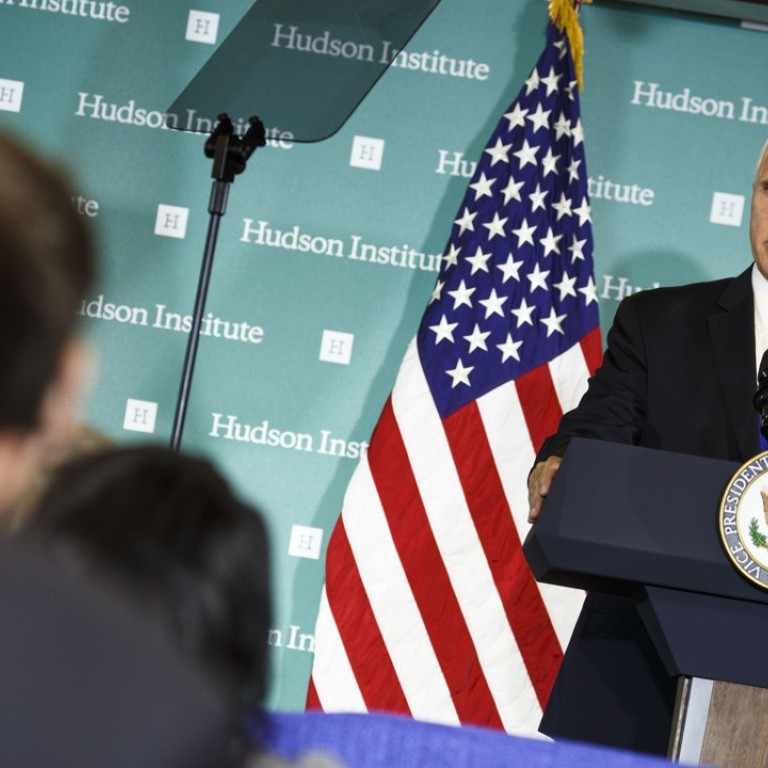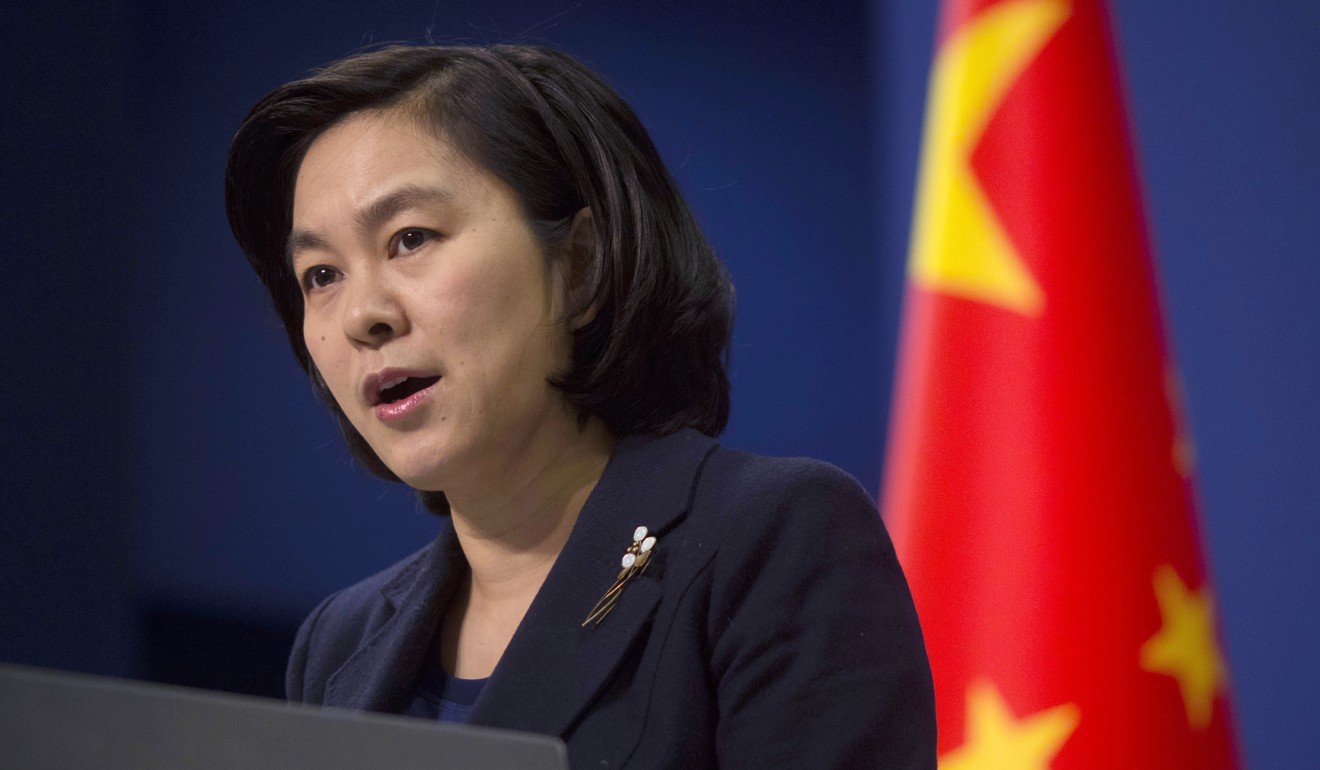
China-US relations at an ‘impasse’ after Pence’s wholesale criticism of Beijing’s policies
US vice-president railed against China’s human rights abuses, censorship and foreign policy, but analysts say accusations of “meddling” are overblown
Any residual hope Beijing might have had that the United States was not out to contain its rise was quashed by Vice-President Mike Pence’s blistering attack on Thursday, according to analysts, who warned the speech marked a new low point in deteriorating bilateral relations.
In his address on Thursday Pence attacked almost every aspect of China’s activities in trade, the economy, military, religion and people-to-people exchanges. He accused Beijing of “meddling in America’s democracy” and called on China’s leadership to change course.
In his speech, Pence cited unnamed sources in the US intelligence community claiming that Beijing planned to target state and local governments in the US and exploit “wedge issues” to advance China’s interests.
He referred to a four-page advertisement bought by Chinese state media in a newspaper in Iowa, a key state in US electoral politics, as an example of Beijing’s plans to influence voters in the 2018 congressional and 2020 presidential elections.

Chinese Foreign Ministry spokeswoman Hua Chunying called Pence’s accusations of meddling “absurd” on Friday morning, and said China had no interest in interfering in US internal affairs.
Hua turned Pence’s claims back on the US, saying “the international community has already seen very clearly in the end who is invading the sovereignty of other countries, interfering in other countries’ internal affairs, and damaging the interests of other countries”.
Zhang Baohui, a professor of political science at Lingnan University, said Beijing was beginning to realise the resolute intentions of the US to contain China’s rise.
“Many Chinese strategic thinkers believe Trump is only a businessman who just cares about economic interests,” he said.
Zhang said a “spiral of escalation” may occur, citing the near collision of a Chinese naval vessel with the USS Decatur on Sunday, and subsequent reports that Washington was planning to conduct new freedom of navigation operations through the Taiwan Strait and the South China Sea.
“I think a new mindset has settled in Beijing which is that it has to start to prepare for the worst,” he said.
More official US criticism of China is due to be released in a Pentagon-led report on risks to the supply of materials vital to the US military, Reuters reported on Thursday.
The report deems China’s control of rare earth metals and strategically important technologies like printed circuit boards to be a growing risk to the US defence industry, and calls for the US to step up investment in particular industries to mitigate China’s influence over the supply of strategic products.
US navy plans major show of strength in South China Sea as warning to Beijing
Pence lashed out at China’s human rights abuses in his remarks, including the shuttering of underground Christian churches last month, and reports of more than 1 million imprisoned Muslim Uygurs in the western province of Xinjiang.
The arbitrary detention of Uygers was also condemned on Thursday by the European Union, which called on Beijing to respect freedom of religion.
The US vice-president called out China’s “culture of censorship” to enforce party dogma at home and abroad, and named the Chinese Students and Scholars Association, which has organisations at 150 American campuses, as an attempt to enforce the Communist Party’s political line over Chinese students abroad.
Mike Pompeo denounces China’s ‘awful abuses’ of detained Muslim Uygurs
The allegations of meddling caught Beijing off guard and left them confused by Washington’s escalation, according to Dr Hoo Tiang Boon, expert on US-China relations at the S. Rajaratnam School of International Studies.
“The issue of interference in US domestic politics is not a traditional source of conflict between US and China,” said Hoo, adding that China was worried that the new problem may become a “permanent thorn” in the relationship.
Hoo said Beijing may bide its time and play defensively until after US elections in November before determining its next move.
Tim Summers, a senior fellow at Chatham House Asia-Pacific, called Pence’s allegations of election meddling “very bizarre”, and said he was confusing public diplomacy with interference.
Summers said Beijing’s key concern “is trying to work out how to deal with an unpredictable and increasingly hostile policy from Washington”, rather than extend its influence across the US.
Chinese Communist Party is stepping up efforts to stifle dissent abroad, US officials are told
Professor Pang Zhongying, director for the Centre for the Study of Global Governance at Renmin University, said Pence’s remarks were a systematic “wrap up” of all Trump’s prior criticisms of China.
The negative image of China was magnified in the run-up to the US congressional elections in November, he said, with both sides now trapped in a vicious cycle of tit-for-tat politics.
“China is facing strong domestic pressure to appear strong and tough,” Pang said, adding that Beijing was unlikely to back down in the face of US pressure.
Li Hak-yin, a researcher on China’s foreign policy at the Chinese University of Hong Kong, said the speech marked an “impasse” in China-US relations, “but neither side will willingly walk into a new cold war”.
The lines of communication remained open between Beijing and Washington, decreasing the risk of hot conflicts erupting, he said.
“Both sides are flexing their muscles, hoping the other will make a compromise.”

